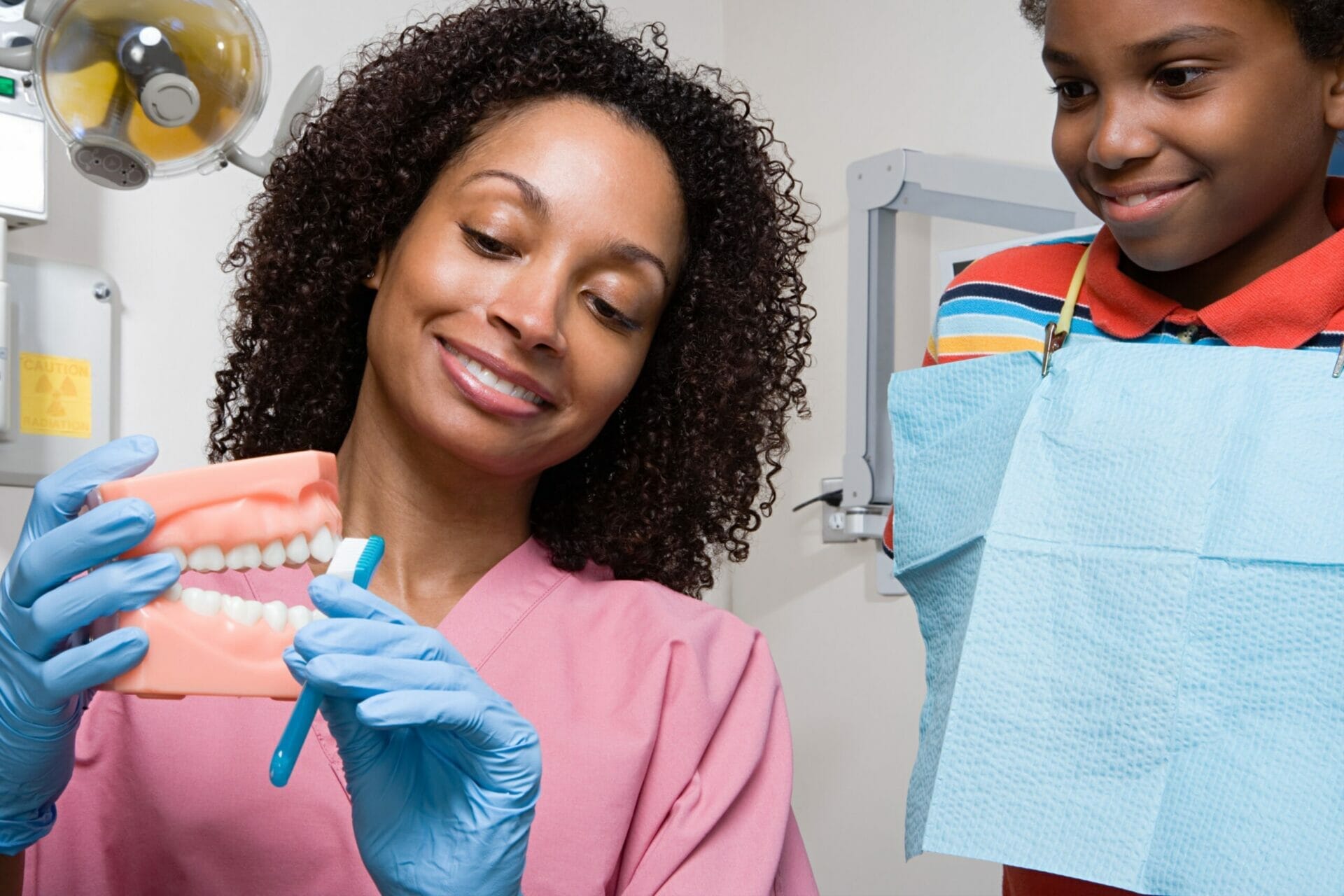
Patients usually note how smooth their teeth feel after dental cleanings. Additionally, if they tend to accumulate stain on their teeth, the increased whiteness after a cleaning is a desirable outcome as well. However, much of the benefit of a dental cleaning happens in areas we don't even see. Below, I will discuss the benefits of a dental cleaning as well as how often we should be having them.
During a dental cleaning, a Registered Dental Hygienist will remove plaque and tartar from under your gums. This is called "scaling" and it comprises the majority of time taken during a cleaning appointment. "Scaling" typically involves use of both hand tools and a power washer or "Cavitron". A hygienist also polishes your teeth during a cleaning.
Where necessary, a Hygienist may recommend application of fluoride to make your teeth more resistant to cavities. They may also measure the depth of your gum pockets at a cleaning appointment. If you are due for a checkup, your Family Dentist will examine your teeth.
The cost of a dental cleaning can vary greatly. The reason is that scaling and polishing are billed according to the amount of time (or number of "units") taken to provide complete service. Units are 15 minute packets of time. If a hygienist scales your teeth for 30 minutes, that is 2 units of time. Some people build more tartar and hard plaque between cleanings. Consequently, they would require a great number of units of scaling compared to a patient with little tartar on their teeth.
With respect to polishing, a patient that builds more stain on their teeth between cleanings would typically require more polishing time to remove all stain. Thus some variability exists between patients in terms of how much scaling and polishing they require at dental cleanings.
A unit of scaling in the 2019 Ontario Dental Association (ODA) Fee Guide is $57. 2 units of scaling costs $114. An additional half unit of scaling costs $29. The most commonly billed number of units scaling for an adult cleaning is 2.5. If we call that a cleaning for the average adult, you are looking at a cost of $143. With a unit of polish ($31) added on, you are looking at approximately $174.
Other items that may add cost to a cleaning appointment include dental x-rays, fluoride application, and a checkup or recall exam.
The amounts I provide above are meant as a guideline. I cannot guarantee that your Kitchener Family Dentist follows the ODA Fee Guide (and they are certainly entitled to set their own fees). Your best course of action is to get a cost estimate from your Dentist for these services.
Regular dental cleanings have a number of benefits. They remove stain, brighten your teeth, and make everything feel smooth again. However, there are other massive benefits that you may not be able to see or feel:
The answer to this question depends on a number of factors. Generally, a patient that brushes 2-3 times daily while flossing 1-2 times daily can wait 6 months between cleanings. This is the most common "recall" or "re-care" interval. However, if you are in a high-risk group for cavities, gum disease, or both, you should see your Family Dentist more frequently (typically every 3-4 months). High-risk groups include:
Importantly, the recommended dental cleaning interval may change for a single individual through their lifetime. Consult your Kitchener Family Dental Clinic to find out what interval would best suit you.
Thank you for reading today's post!
This article is intended to promote understanding of and knowledge about general oral health topics. It is not intended to be a substitute for professional advice, diagnosis or treatment. Always seek the advice of your Kitchener Dentist or other qualified healthcare provider with any questions you may have regarding a dental condition or treatment.
Services
Routine Dentistry & Tooth Repair
Oral Surgery & Tooth Removal
Prosthetic Dentistry & Tooth Replacement
Protective/Preventive Services
Teeth Whitening
Schedule an Appointment Now
